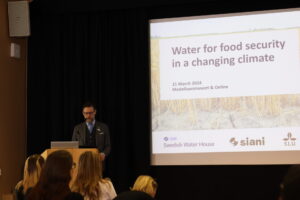Global meet in Addis Ababa: the next hurdle for global sustainable development
Companies that dare to be frontrunners will be in a position to effect real change. Imposing consistent, concrete demands and requirements will benefit compliance – as will proactively considering the entire supply chain, and not waiting for consumer-driven demand.
The New Climate Economy is in this regard, a basket of carrots, presenting not only opportunities for businesses to separate themselves from their competition, but also to an extent, shape the new economy landscape.
Next week, the Financing for Development conference will take place in Addis Ababa, Ethiopia, at which time governments will agree on a global development financial framework. This framework could potentially have catalytic implications for the scaling-up of financial resources, but in order for it to work, all of society must be on-board.
During the conference, global leaders will together be responsible for steering global policy in the right direction. They will be required to make concrete decisions on how to allocate funds and ensure the efficient implementation of sustainable development initiatives in the post-2015 agenda.
Business has a crucial role in ensuring investment supports climate resilient pathways.
If promises are to be kept, we need move beyond the policy papers and turn words into actions. To ensure accuracy and fairness, ecosystem services need to be valued properly and pollution must bear its fair price. Subsidies for fossil fuels still greatly exceed levels of global official development assistance (ODA) (nearly 550 billion USD in 2013). Carbon tax and carbon trading can also aid climate change mitigation and would help to close the CO2 gap before 2020. To de-invest, or withdraw investments from unsustainable and/or unethical practices would also be beneficial (and is gaining some momentum).








